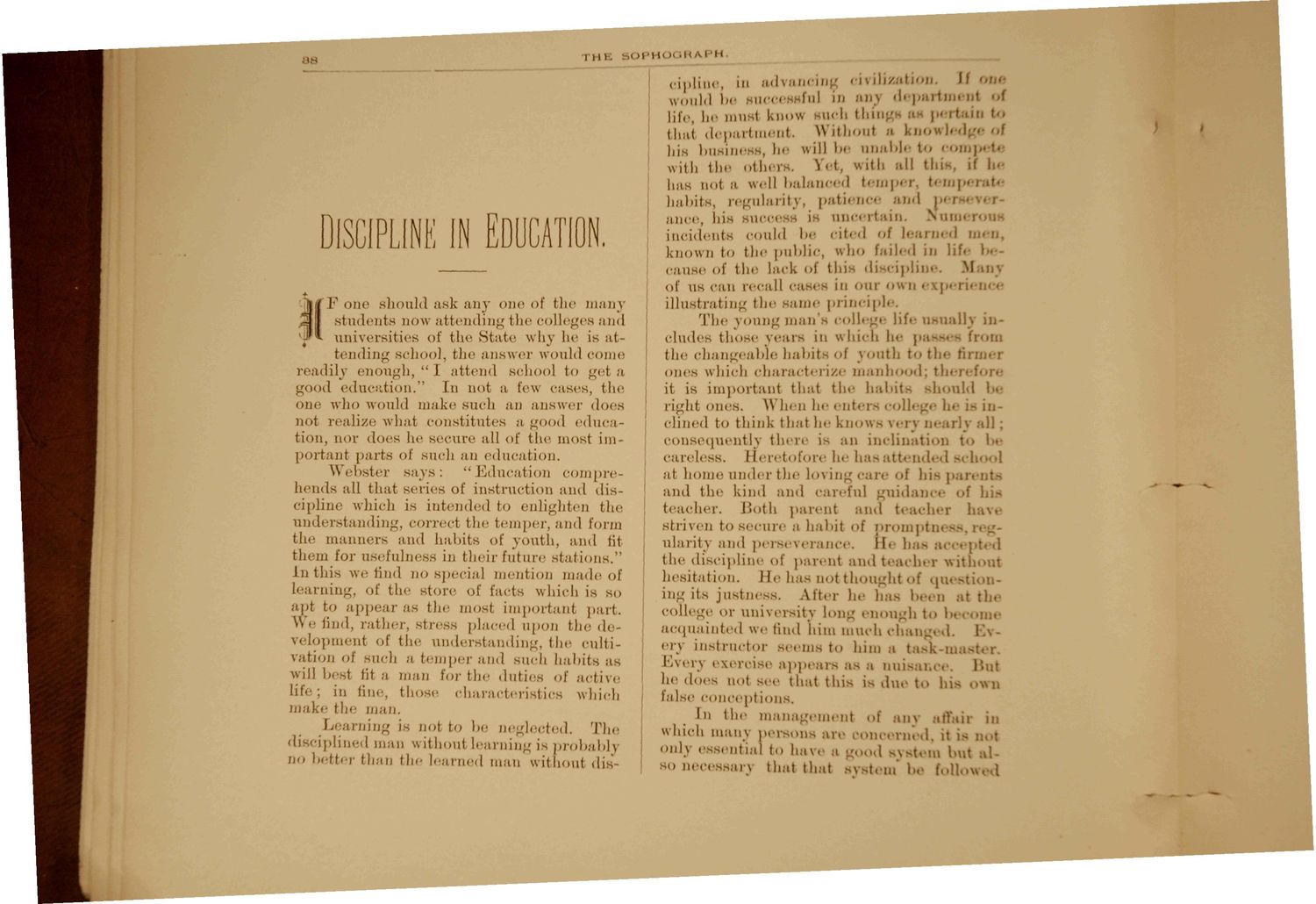| |
| |
Caption: Sophograph - 1891
This is a reduced-resolution page image for fast online browsing.

EXTRACTED TEXT FROM PAGE:
, , , |.. ., >| 1 1 1 U . M A I M cipline, in advancirij civilization. // U( ,,dd he succei diil in anj departm l i f e , ho m i l t k n o w inh the >f [•' one should ask a n y one of t h e m a n y students now attending the colleges and universities of t h e S t a t e why he is a t t e n d i n g school, t h e a n s w e r would CO1716 readily enough, " I attend school to gel a good education.'' In not a few cases, the one who would m a k e such an a n s w e r d o c s not realize what constitutes a good education, nor docs he secure all of the most important parts of such an education. Webster says: "Education comprehends all that series of instruction and discipline which is intended to enlighten the understanding, correct the temper, and form the manners and habits of youth, and fit them for usefulness in their future stations." in this we find no special mention made of learning, of the store of tacts which is so apt to appear as the most important part. Vve find, rather, stress placed upon the development of the understanding, the cultivation of Such a temper and such habits as will best fit a man for the duties of activi life; in fine, those characteristics which make the man. Li rning is not to be neglected. The disciplined man without learning is probabh "" better than the learned man without dis- fchaj department. Without .-. he his business, he will I- unable to uith tie- others. ^ et, with all th if I has not a well balanced tempei top habits, regularity, patienc< nil pei ance, his succe is nncerl \ ami is incidents could be cit< d i l men known to t be public R b iled in lif cause of the lack of this di rip] Mai of us can recaII ca in < ir own < illustrating the same principle. The voungman - coll* li oally includes those vears in which he pa m the changeable habits i>f j out h to tin ones which characterize manh it is important t hat the habit II right ones. \\ hen he entei coll< inclined to think that he know ncarl ill consequently th ie an mclinati to 1 • careless. I lerefo >re he h tided scl 1 at h o m e u n d e r t h e |«»\ i n g , - a i . o f 1 and the k i n d and careful unlan teacher. Both parent a m i I ode >f h 1 striven to secui ahabit of j >mptins> ularitv and perse^erance. He 1 1 the discipline of parent and teach without hesitation. He has not thought of questioning its justness. After \if 1 - I n > tin college or university long enough t«» I • acquainted we find 'him much i I. Every instructor si ms to him a task Every e\ vise appears as a nuisan I he du.-s not see that this is due to bis false conceptions. In the management ol any ur in which main pi , .-,,. mod, it l- not only essentia] to hav< i s . • i but Iso necessary that that system' I I
| |